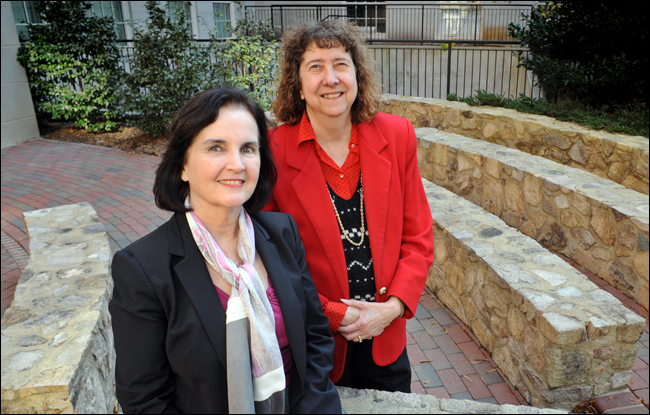
Linda Watson (left) and Betsy Crais (right) are professors of speech and hearing sciences who have dedicated much of their careers to working with autism spectrum disorder.
Linda Watson and Betsy Crais are familiar with the extensive journey many Americans find themselves on when trying to acquire services for children with autism spectrum disorder.
As professors of speech and hearing sciences in the Department of Allied Health Sciences and part of UNC’s Program for Early Autism, Research, Leadership and Service (PEARLS), they have made autism screening, early detection and research the center of their academic lives.
This past summer, they took that experience abroad, traveling with a group to Bolivia, where autism services lag far behind what can be found in the United States.
There, they helped clear a path for the children and families who lack the robust, well-organized resources for help that are more common in America.
Partners of the Americas, an organization that links people in the United States with people in Latin American and Caribbean countries based on common interests, had identified a need for autism assistance in Bolivia. They contacted Patsy Pierce, a former UNC faculty member in speech and hearing sciences who had worked with the group concerning other childhood disabilities.
Pierce led them to Watson and Crais. At first the professors, who knew neither the language nor the culture of the country, weren’t confident their expertise would translate.
Unlike some medical outreach where vaccines, medicines, extra hands and equipment can make an immediate impact, breakthroughs in autism would have to come a different way.
Still, they agreed to help find that way. “We’re helpers. That’s just the profession we’re in,” Crais said.
Having an impact would mean bolstering the capacity to provide necessary services in Bolivia, Watson said. “We had to figure out what they needed first,” she said.